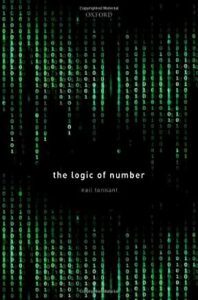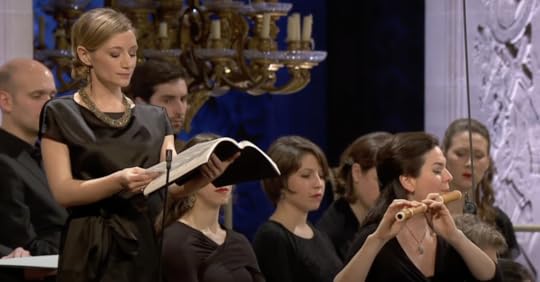Peter Smith's Blog, page 34
April 2, 2022
For a world gone awry
“The St Matthew Passion is one of the most moving experiences of our common humanity that it is possible to share. The story of the Passion of Christ remains today a living drama and moral dilemma of universal relevance, in which — whatever our spirituality or culture — all of us are confronted with our own mortality, our own search for answers. We all share its humanity. Bach’s immense genius is to step completely outside the liturgical framework by placing us at the very heart of the drama: we become the actors, we take part in the action, we feel it, in our sensibility and even physically. We traverse a drama that is above all human: injustice, betrayal, love, sacrifice, forgiveness, remorse, compassion, pity … In quite unprecedented fashion, Bach conveys and makes us feel the fragility and failings of humanity and describes a world gone awry, where love and faith are the only answers. In seeking to challenge and console the human conscience, he offers us genuine ‘balm for the soul’, universal and timeless.”
Thus Raphaël Pichon, in the booklet for his stunning new recording of the Matthew Passion with his Ensemble Pygmalion and a stella cast of singers. The short video linked above is of Sabine Devieilhe singing the aria ‘Aus Liebe will mein Heiland sterben’ from an earlier performance. And here is a wonderful video of a complete performance from last year.
The post For a world gone awry appeared first on Logic Matters.
April 1, 2022
A quarter’s novels
For a while, I’ve been trying to read a dozen novels a quarter, and so far this year I’m (almost) on track, having read
1. Abir Mukerjee, A Rising Man
2. Pat Barker, The Women of Troy
3. Elizabeth Strout, Oh William
4. Barbara Pym, Jane and Prudence
5. (Elif Shafak, The Architect’s Apprentice)
6. Kate Atkinson, Behind the Scenes at the Museum
7. Antonia Byatt, Possession
8. Benjamin Black, Christine Falls
9. Ivan Turgenev, Home of the Gentry
10. Andrea Levy, Small Island
11. Ruth Prawer Jhabvala, Heat and Dust
12. Mary Lawson, A Town Called Solace
I tried Abir Mukerjee’s Indian detective story as light relief having just finished Anna Karenina once more; but I found it very disappointing — the plot rather routine, and surprisingly thinly painted local colour. But both the new Pat Barker and new Elizabeth Strout are as predictably brilliant as all the reviewers said. And Barbara Pym, a late discovery for me, is always a delight (at least for an English reader of a certain vintage).
I’m cheating a bit listing Elif Shafak’s book here, as I didn’t finish it. It is extraordinary, but to be honest before the end I got bored …. So I picked up one of the always hugely enjoyable Kate Atkinsons to re-read. Next, the weighty Possession has been on our shelves a lifetime, and I realised about a third of the way through that I had never read it all before: it now strikes me as very impressive on many levels, and I’m sure I missed much.
After that, for lighter entertainment again, I tried the first of the books by John Banville writing as Benjamin Black. Beautifully written as you might predict, and I rattled through it: but I’m not sure I’ll be returning to the series.
Turgenev remains a favourite, and I seem to have re-read most of his main novels in the last two or three years. Our old Penguin copy of Home of the Gentry had fallen to bits, and I bought a more recent translation which seemed occasionally oddly wrong in tone — so I found myself returning to the later half of the Penguin which was still intact. And then Small Island is wonderfully humane and engaging, and definitely worth revisiting. But while Heat and Dust won the Booker Prize, once upon a time, that fact today seems very surprising; this does now seem to be a rather insubstantial novel.
Finally, Mary Lawson’s A Town Called Solace comes recommended by Anne Tyler, and you can see why. I suppose this too is also slight in its way; but it is one of those books with overlapping small domestic worlds, touched by human dramas, which ambushes you as you realise that you have become so attached to the three central characters that you don’t want the book to end as soon as it does.
If I had to recommend just one of the newer books as a must-read? Elizabeth Strout’s perhaps. Wonderful writing and real feeling for the complexities of ordinary human relationships.
The post A quarter’s novels appeared first on Logic Matters.
March 31, 2022
Beginning Category Theory: Chs 1 to 9
Slow progress again but, as I said before, any progress is better than none. So here are Chapters 1 to 9 of Beginning Category Theory. [As always you may need to force a reload to get the latest version.]
And no, there isn’t really a new chapter. I’ve split what was becoming a baggy chapter about kinds of arrows into two, and I hope to have made some of it a fair bit clearer and better organised. The chapters are
Introduction [The categorial imperative!]One structured family of structures. [Revision about groups, and categories of groups introduced]Groups and sets [Why I don’t want to assume straight off the bat that structures are sets]Categories defined [General definition, and lots of standard examples]Diagrams [Reading commutative diagrams]Categories beget categories [Duals of categories, subcategories, products, slice categories, etc.]Kinds of arrows [Monos, epics, inverses]Isomorphisms [why they get defined as they do]Initial and terminal objectsCh. 3 has been mildly revised again, and as I said Ch.7 has been significantly improved. Various minor typos have been corrected. And there have been quite a few small stylistic improvements (including, I’m embarrassed to say, deleting over 50 occurrences of the word “indeed” …).
The post Beginning Category Theory: Chs 1 to 9 appeared first on Logic Matters.
March 30, 2022
The Logic of Number
 Having been so very struck by Russell and Frege as a student — a long time ago in a galaxy far, far away — I have always wanted some form of logicism to be true. And the deviant form canvassed by Tennant back in his rich 1987 book Anti-Realism and Logic (I mean, deviating from neo-Fregean version we all know) is surely worth more attention than it has widely received. So I’m looking forward to reading Tennant’s latest defence of his form of logicism, in his new book The Logic of Number, published a few weeks ago at a typically extortionate OUP price.
Having been so very struck by Russell and Frege as a student — a long time ago in a galaxy far, far away — I have always wanted some form of logicism to be true. And the deviant form canvassed by Tennant back in his rich 1987 book Anti-Realism and Logic (I mean, deviating from neo-Fregean version we all know) is surely worth more attention than it has widely received. So I’m looking forward to reading Tennant’s latest defence of his form of logicism, in his new book The Logic of Number, published a few weeks ago at a typically extortionate OUP price.
On a quick browse, the book goes in a somewhat different direction to what I was expecting, having read Tennant’s 2008 piece ‘Natural Logicism via the Logic of Orderly Pairing’. The additional new apparatus for developing arithmetic added in that paper seems not to be in play again here. Rather, the book doesn’t (I think) develop arithmetic as far, but instead goes on to discuss logicist accounts of rationals and reals.
I’ll perhaps try to say something more about the book in due course, when some other reading commitments are done and dusted. Meanwhile you might well in fact be able to take a look if interested. For The Logic of Number, I’m glad to say, has just been also made available at Oxford Scholarship Online. So if your university library has a suitable OUP subscription, it should be free to read.
The post The Logic of Number appeared first on Logic Matters.
March 27, 2022
Beginning Category Theory: Chs 1–8
Here now are Chapters 1 to 8 of Beginning Category Theory.
The new chapter is on initial and terminal objects; there have only been minor changes to other chapters from Chapter 4 onwards. These new chapters 1 to 8 are I think a significant improvement to the corresponding Chapters 1 to 6 of the old Gentle Introduction. Or at least, they are a significant improvement in clarity of content. But I don’t think I have yet quite hit the mark as far as tone/reader-friendliness is concerned. So I need to let these pages marinade for a few days, and then return to them (particularly to the last couple of action-packed chapters) to make them a little more relaxed. Onwards!
The post Beginning Category Theory: Chs 1–8 appeared first on Logic Matters.
March 23, 2022
Beginning Category Theory: Chs 1 to 7
Here now are Chapters 1 to 7 of Beginning Category Theory.
The new chapter is on kinds of arrows. I have also revised Chapter 3 (now preferring to talk about implementing structures in set theory, rather than to talk of set-theoretic surrogates or proxies — the change of rhetoric isn’t really a change of view, but will I hope slightly mollify some readers!).
I should say that Beginning Category Theory is very much a work in progress, and I can imagine these early chapters getting significantly revised to better fit the later ones in content and tone. But, for all that, I’m putting them online as I go along, when I get to the point of thinking that a new chapter is at least better than the corresponding old one in the Gentle Intro!
The post Beginning Category Theory: Chs 1 to 7 appeared first on Logic Matters.
Online mini-conference on logical pluralism
Just a reminder that I’m very happy occasionally to announce here new books, online conferences, etc., that are likely to be of interest to enough readers of this blog. Just let me know if you have something suitable you want to publicise.
So: there is an online three-paper conference Logical Pluralism: One logic, or many logics? announced for Friday April 1st (from 10 am, EST), from James Madison University:
“Perspectival Logical Pluralism” Roy T. Cook (Minnesota)“Logical Pluralism: Boring Truth? Exciting Falsehood?” Erik Stei (Utrecht)“Logical Pluralism and Logical Disputes” Teresa Kouri Kissel (Old Dominion Univ.)Zoom links etc. available from the conference webpage here.
The post Online mini-conference on logical pluralism appeared first on Logic Matters.
March 20, 2022
Beginning Category Theory: Chs 1 to 6
Slow progress, but some progress is better than none. So here are Chapters 1 to 6 of Beginning Category Theory. The chapters are
Introduction [The categorial imperative!]One structured family of structures. [Revision about groups, and categories of groups introduced]Groups and sets [Why I don’t want to assume straight off the bat that structures are sets]Categories defined [General definition, and lots of standard examples]Diagrams [Reading commutative diagrams]Categories beget categories [Duals of categories, subcategories, products, slice categories, etc.]Both Chs 2 and 3 are mildly revised from the posting a week or so back. Chapters 4 to 6 are tidier versions of what were Chapters 3 and 4 in the old Category Theory: A Gentle Introduction. And so these six chapters taken together replace the first four of the Gentle Intro.
The Stage 1 plan over the coming weeks is to correct/smooth the existing content from the Gentle Intro. Stage 2 will then be to round out that content (same or closely related topics, same level, but improved examples, etc.). Stage 3 will be to push on to a look at a few more topics I want to cover.
The post Beginning Category Theory: Chs 1 to 6 appeared first on Logic Matters.
March 14, 2022
The Pavel Haas Quartet play Haydn Op. 42
 From photo by Marco Borggreve [Click for original]Grim, grim days.
From photo by Marco Borggreve [Click for original]Grim, grim days.
For fifteen minutes of consolation, here is a wonderful performance of Haydn’s Op. 42 String Quartet by the Pavel Haas Quartet. It is on the BBC website, a late night programme from a few days ago: the Haydn starts at 4:59:30.
This must, I think have been from a Wigmore Hall concert some years ago now, when the violist was Pavel Nikl. So the cheering photo, from the quartet’s latest gallery from the fine photographer Marco Borggreve, doesn’t quite fit! But I thought I would post it anyway …
The post The Pavel Haas Quartet play Haydn Op. 42 appeared first on Logic Matters.
March 13, 2022
Beginning Category Theory: Chs 1 to 3
Here’s a significantly improved version of the opening chapters of Beginning Category Theory. In particular, Chapter 3 is shorter, better focused, and makes it clearer (I hope) while I’m fussing a bit about e.g. why functions aren’t sets!
Updated The two reported typos corrected (thanks!) and a sentence changed in the the final section.
The post Beginning Category Theory: Chs 1 to 3 appeared first on Logic Matters.




